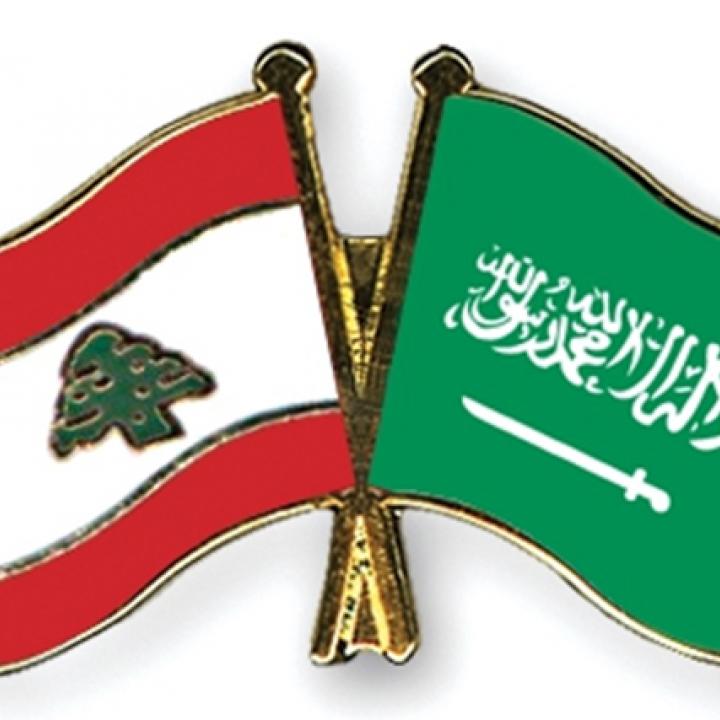
- Policy Analysis
- Policy Alert
Saudi Arabia Rethinks Its Commitments to Lebanon

Riyadh's latest financial and diplomatic measures may just be a shot across Beirut's bow, but several signs point to a potentially wider Gulf withdrawal that could leave Lebanon even more at Iran and Hezbollah's mercy.
Earlier this week, Saudi Arabia announced it was withdrawing its deposits from the Central Bank of Lebanon. The withdrawal was the latest in a series of recent Saudi actions against Lebanon, including an official advisory against travel there and the cancellation of a $3 billion grant to the Lebanese Armed Forces (LAF) and $1 billion to the Internal Security Forces. Ostensibly, these measures were precipitated by Lebanon's abstention last month from a nearly unanimous Arab League resolution condemning Iran for not preventing the January 3 sacking of the Saudi embassy in Tehran and consulate in Mashhad. The non-vote was cast by Lebanese foreign minister Gibran Basil of the Free Patriotic Movement, a coalition partner of the Iranian-backed Shiite militia Hezbollah.
Riyadh's moves also coincided with the passage of the "Hizballah International Financing Prevention Act of 2015," a new U.S. law that many in Lebanon are concerned will undermine the state's robust financial services industry. Taken together, the Saudi and U.S. measures threaten a perfect storm that could shake the foundations of Lebanon's already tenuous economy.
On its own, the Central Bank withdrawal does not seem particularly significant -- Gulf deposits there total under $1 billion, or about 2 percent of Beirut's foreign reserves. Yet the travel advisory will have an impact, especially since it was quickly parroted by Kuwait, Bahrain, and the United Arab Emirates. Tourism accounts for about 7.5 percent of Lebanon's GDP, totaling $3.5 billion in 2014. In recent years, the sector has been badly hurt by the war next door and the arrival of nearly 1.8 million Syrian refugees, with revenues in 2015 down nearly 10 percent from 2012. Nevertheless, Lebanon has survived as the region's primary playground for Gulf tourists -- one of the industry's few bright spots until this week's travel advisories.
As for the cancellation of $4 billion in Saudi funding for procurement of French weapons systems, the move is highly symbolic but will likely have little practical effect. Lebanon's armed forces are unable to maintain their current systems (e.g., less than a third of their nearly thirty Huey and Puma helicopters are presently airworthy), so it is unclear how they could afford to fly or properly maintain the new $23 million French Cougar helicopters they were slated to purchase. Likewise, it is not evident that the LAF really needed the other cancelled items, including antiaircraft systems, three corvette patrol boats, and two dozen Caesar self-propelled 155-millimeter artillery pieces. In fact, the deal was so fraught with questions and corruption that some Lebanese politicians are quietly applauding the outcome as a boon for the LAF.
Perhaps the most important factor in the whole affair is the potentially significant impact that Gulf retrenchment could have on Lebanon's general economic mood. Even before these developments, investing in Lebanon -- a state with public debt of $69 billion, or 132 percent of GDP, not to mention boiling sectarian tensions, sporadic violence, a history of civil war, and a shared border with Syria -- required a strong stomach. The Saudi pullout makes matters worse. Tourism, real estate, and construction are key drivers of the Lebanese economy, and the flight of Gulf capital will stress these sectors. It could also spook other would-be investors, harming the lively financial sector.
In recent weeks, the Saudis have shuttered Beirut branches of AlAhli Bank, and only a few Kuwaiti National Bank branches remain open there. Other banks are no doubt concerned about the onerous due diligence required by new U.S. legislation and may depart as well. Rumors are also flying about wealthy Gulf citizens liquidating their posh summer estates in Hamana, Brumana, and Jounieh. Many locals are now anxiously waiting for the other shoe to drop -- namely, Saudi Arabia and other Gulf states potentially expelling hundreds of thousands of Lebanese expatriate workers. These workers contribute $5 billion in revenue back home, which amounts to 70 percent of Lebanon's total remittances and nearly 11 percent of its GDP.
The Saudi shift could have major political implications as well. For decades, Riyadh has been an important player in Lebanese politics, mainly as a counterweight to Iran and Hezbollah. Although it has reduced its support for local Sunni allies in recent years, particularly Saad Hariri of the so-called March 14 coalition, it still maintains seemingly excellent ties with other politicians, notably Hariri's Christian coalition partner Samir Geagea of the Lebanese Forces party.
It is too early to judge what these economic and political measures represent: a Saudi warning that Beirut needs do better at walking the tightrope between Tehran and Riyadh, or the initial phase of a full-on Gulf redeployment away from the Lebanese project. Yet the current trajectory seems to be toward a downsized Saudi role in Lebanon, which would leave the state more than ever at the mercy of Iran and Hezbollah.
David Schenker is the Aufzien Fellow and director of the Program on Arab Politics at The Washington Institute.



